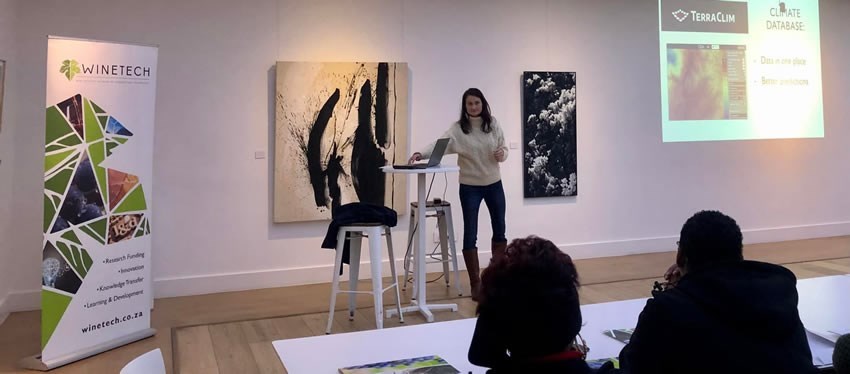The inability to adapt is one of the main reasons projects fail, while a high level of flexibility and adaptability is important for success.
Managing change remains a challenge, but there is little understanding of what adaptable leadership should look like. Therefore, the question needs to be asked: what makes an adaptable leader? An adaptable leader could be defined as someone who is able to change their behaviour in response to unexpected challenges. They are flexible and show resilience when things do not go as planned, while seeing it as an opportunity to learn.
People who are willing to change will always remain relevant, because they are comfortable experimenting with new approaches and finding solutions, while challenging the conventional way of doing things. There are few people and for that matter few projects, that got where they are by continuing to do the same thing. Being adaptable means being a perpetual optimist and accepting failure as part of a learning process.
During a crisis, leaders must be open-minded enough to be able to identify new possibilities and we may realise we have many more resources than we thought. However, it is necessary to identify how the change will affect a project, to formulate alternative strategies, and most importantly, demonstrate the ability to “think out of the box”.
Successful change is one of the biggest challenges a project must face. In the fast-changing wine industry, the message is clear: without doing things differently, it is unlikely that a project will succeed or perhaps even survive. Change is always difficult, but those who negotiated it successfully are willing to step out of their comfort zone and focus on the bigger picture. It is also important to remember that all projects evolve over time. Nothing ever remains the same.
However, successful change cannot take place without leadership. Leaders who are flexible can incorporate different strategies into their planning and decision-making. Flexible leaders are known for fast thinking and see change as an opportunity rather than a threat. They always seek new, innovative ways to solve problems and view change as a challenge. It is important not to get attached to a single plan or approach and to always have a plan B and a plan C in place. It is equally important to ask a lot of questions and to evaluate a project before final decisions are made.
During a time of change, effective leaders must be able to energise themselves and others. They must demonstrate their resilience and ability to make positive contributions in a demanding environment. It is critical to evaluate challenges and approach them with new solutions. It is equally important for leaders to be decisive after considering the available information and compare the pros and cons while deciding. People who fail to take decisions will also fail to learn from their experiences.
Good leadership results from experience, some of which might have involved some degree of failure. Ultimately the ability to continuously learn and adapt will determine the extent to which a project will succeed in the future.

The Winetech cellar assistants’ programme is known for knowledge transfer to cellar assistants in the industry. An interesting characteristic of the programme is the ability to continuously adapt the content and still achieve goals successfully. However, the alcohol ban in 2020 and 2021 had an extreme impact on the programme’s funding, which was reduced to such an extent that the programme could not continue to be presented in the well-known format. It is also true that the reduced funding was the biggest challenge the programme faced during the past 15 years. Therefore, serious decisions had to be made to ensure that the programme continues, goals are still achieved, and value is added to the careers of cellar assistants in the industry, even with the limited available funds.
Winetech has an obligation and responsibility towards the industry to ensure that a quality service is delivered and that knowledge transfer to participating cellar assistants takes place in a satisfactory manner. Since 2012, participating cellars and cellar assistants have been requested to give feedback regarding all aspects of the programme. The annual evaluation has become an integral part of the programme and a valuable tool providing vital information to assist with aspects such as the content and structure. It is also a useful tool to understand the needs and challenges of participating cellars and cellar assistants.
The annual evaluation of the Winetech cellar assistants’ programme has always been part of the programme’s culture and contributed to more efficient systems and changes when necessary. What worked five years ago for the programme does not work in the current situation. Feedback from participating cellars and participants during the past two years confirmed that there is a serious need for practical, as well as general knowledge transfer pertaining to winemaking processes.
Therefore, the 2021 evaluation provided direction and evidence to inform strategic decisions which had to be taken towards the end of that year.
In 2022 the well-known Winetech study groups and workshops for senior cellar assistants were replaced with a single information day for all cellar assistants employed in the industry. The 2022programme included diverse, practical topics which broadened cellar assistants’ knowledge. Feedback received was very positive and consequently, two information days will be presented during 2023, one each in Stellenbosch and Worcester.
The Winetech cellar assistants’ programme continues to make a significant contribution to the development and knowledge transfer to cellar assistants in the wine industry. The 2023programme, which is as always free of charge, will include relevant topics aimed at adding value to the careers of participants. Well-known viti- and viniculturists, who are all experts in their relevant fields, will present the programme.
Should your cellar be interested in participating in the 2023 information days, please contact Santi Basson at 0722988186 or santib@mweb.co.za.